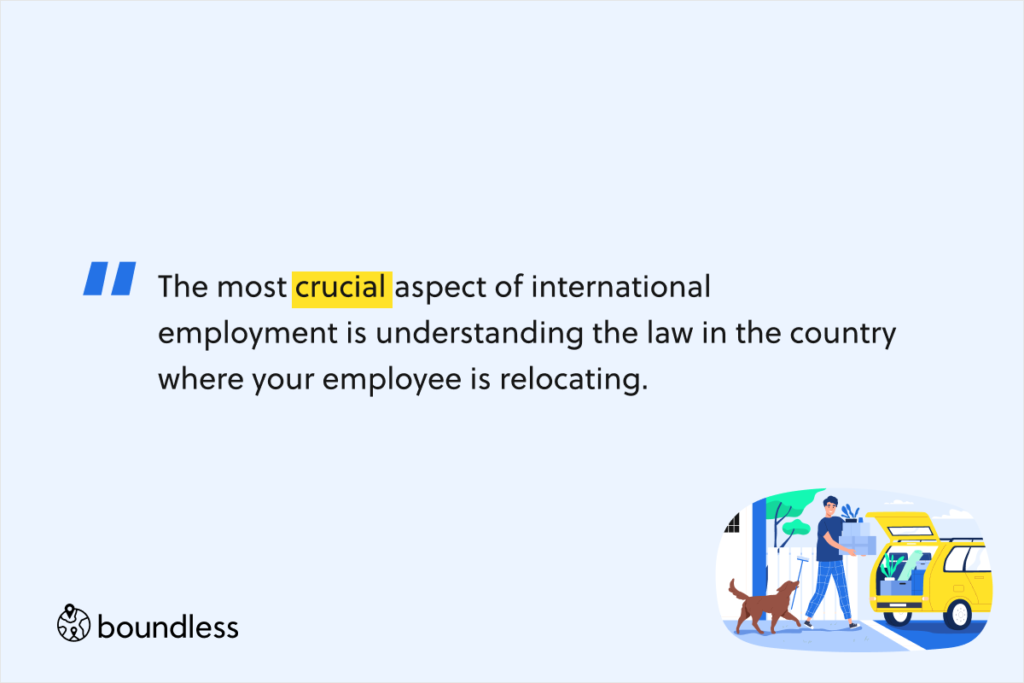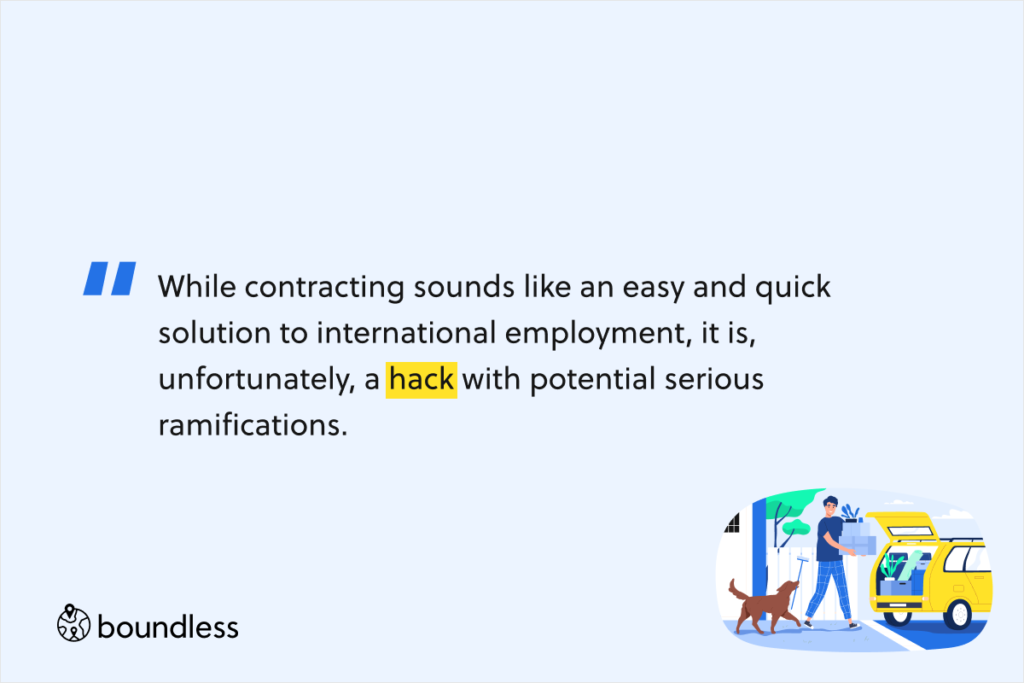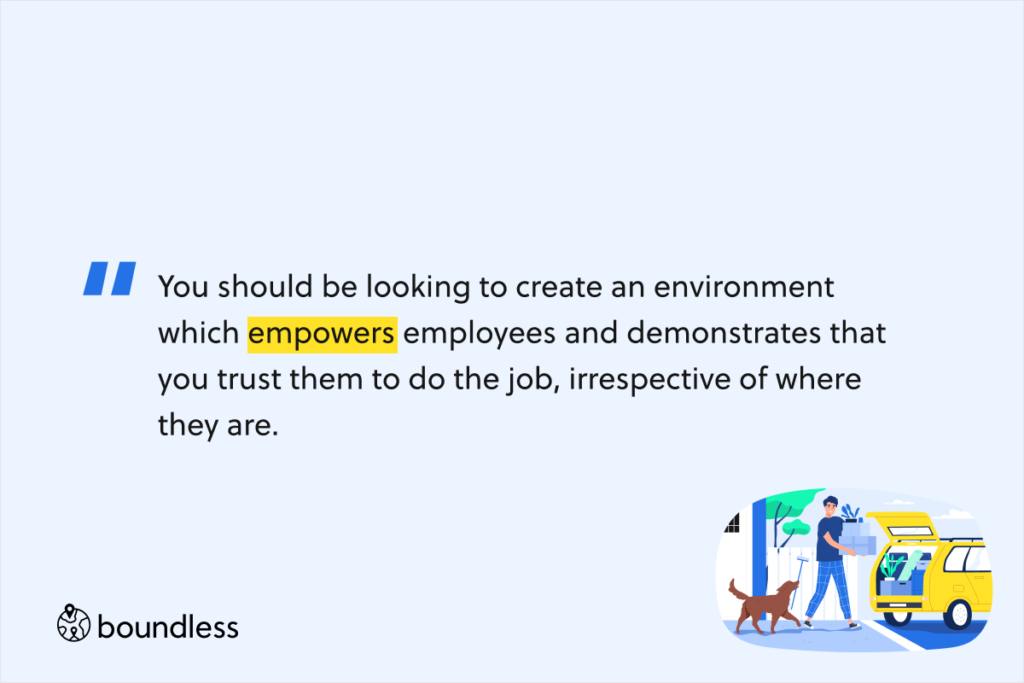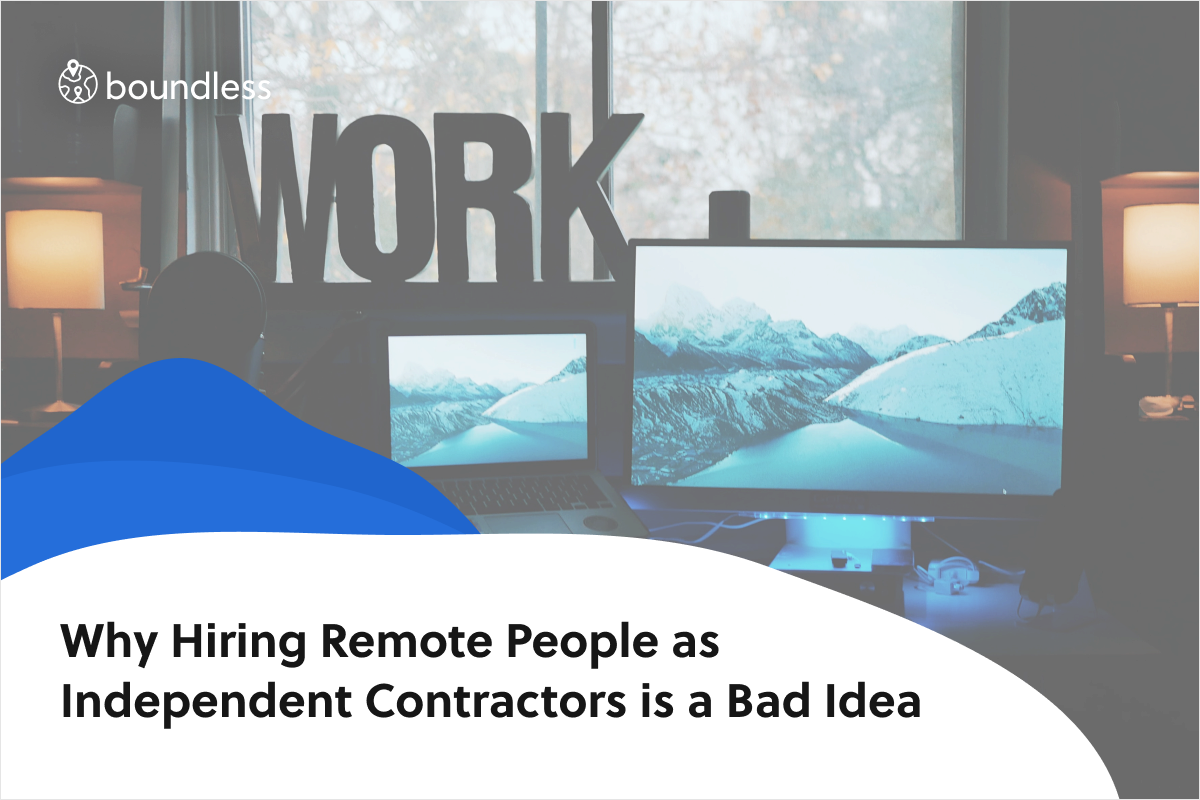In this guide, we’ll cover the basics of setting up global payroll, the different ways of managing the process, how external payroll partners operate, and best practice tips to avoid common stumbling blocks when managing payroll on an ongoing basis.

In the face of an incredibly challenging period for businesses in the past two years, one silver lining has been the successful shift to remote working. Pre-Covid, while some jobs offered an element of flexibility, the broad consensus was that teams had to be physically together to succeed. The last two years have proved this theory wrong. Businesses have discovered that many roles can be carried out successfully from home and that relationships with colleagues and customers can be just as fruitful when managed virtually.
For thousands of employees, this shared realisation has opened up new possibilities about where they work – moving overseas to their dream location, or returning to their home country to be closer to loved ones. And the good news for businesses is that you no longer need to wave these employees goodbye. With the right guidance and support, you can facilitate your employee’s move and keep your best and brightest talent within the business.
Here’s how to get started.
The most crucial aspect of international employment is understanding the law in the country where your employee is relocating. Every place has its own unique rules on your contractual obligations, statutory notice periods, taxation and employee protections. In some countries, the rules even differ from state to state. And it’s not always obvious. For example, in Portugal, annual salaries are divided into 14 payments instead of the standard 12. And in Ireland, the new legislation gives employees the right to disconnect from work outside working hours.
Complying with local employment law is fundamental for the running of your business. These laws are in place to protect employees and guarantee their rights, as well as to clearly define your liabilities as an employer. There are hefty fines for getting it wrong, and you’ll risk damaging your reputation in the local market too – making compliance the first priority on your tasklist when helping an employee move overseas.
Of course, depending on your company’s own resources, it might be impossible to have the exact knowledge needed to support employees appropriately in a transition of this level - so it’s best to make sure they know they should seek tailored tax and immigration advice from a professional in order to avoid potential bad surprises with the local tax office.
One thing you will need to keep in mind on behalf of your employees is the fact that if their payroll is still in the country of residence, they may be denied access to the health care system in their home country. For EU citizens, one solution for this is the European Health Insurance Card (EHIC) which allows them to receive healthcare in another EU or European Economic Area (EEA) country. Since these are only valid for up to three months, it is important to understand their plans and transition them to local employment and payroll if they intend to stay longer.

One of the most common ways to work with people in different jurisdictions is to draw up independent employer contracts, involving signing people up to fixed term or ongoing service agreements. This means that they are registered as either freelancers, sole traders or limited liability company owners, who file an invoice once a month in order to get paid.
But, while contracting sounds like an easy and quick solution, it is, unfortunately, a hack - and one which can have serious ramifications as governments are taking serious action against potential employee misclassification. Indeed, regardless if a company has decided that someone is an independent contractor, the tax or employment authority will beg to differ if it deems that to be a misclassification. As a result, it will not only force the company to change the status of the individual but also will require backdated payments and very likely enforce penalties.
At Boundless, we strongly advise against working with remote workers based on independent contractor agreements.
While relocation can deliver significant benefits for both the business and employees alike, it is not without its challenges. Beyond the legal considerations, there are a number of other issues which need to be managed – not least supporting your employee to make a successful and happy transition to their new location.
Top of the list should be ensuring that the employee still feels like a valuable and valued part of the team. You also need to make sure that their ability to connect and collaborate with colleagues is as seamless as possible. Choosing the right technology is important here – as are concrete guidelines and policies on how to best work together.
Trust is crucial too. It's easy to trust people when you can see them working at a desk next to you, but remote work requires a leap of faith. As long as your employees are doing the work and meeting deadlines, try not to get caught up in the specifics of when they’re at their desk. You should be looking to create an environment that empowers employees and demonstrates that you trust them to do the job, irrespective of where they are.

So, relocation is not as straightforward as letting your employee hop on a plane and continuing to pay their wages wherever they land. Local employment laws and obligations are complex, and this complexity has led many companies to consider using an Employer of Record (EOR) for their remote staff.
An EOR is a third-party organisation that becomes the legal employer of the individual, as far as the government, tax, and employment authorities are concerned. This is the route to choose to ensure that you can quickly and easily, legally and compliantly employ someone in a different country without headaches or overheads on the side of the company. That is because all the complexity that comes with international employment is taken care of for you.
It’s a quicker, easier way to ensure their employment is compliant with local employment laws, as well as reducing your admin too. EORs can handle everything from processing local payroll, filing employment-related taxes and returns to issuing payslips, distributing salary payments and even managing any statutory benefits in the country, for example, pension contributions in the UK.
What’s more, the EOR can provide employment contract templates, for companies to fill in specific details around the role. If contracts aren’t accurate, they could be deemed void, meaning that the employee is working illegally – and so outsourcing this complexity to an expert is an attractive proposition.

So, helping an employee relocate while keeping them in the business, is not impossible.
Get all of this right, and the possibilities stretch well beyond just supporting one employee’s request. You could be at the start of a journey towards a much wider remote strategy that can support your business and power its international growth.
Once you’re able to successfully support staff away from your home country, you’ll also be in a prime position to start tapping into a global talent pool – finding and hiring the right expertise to help your business grow, wherever they might reside.
For short term arrangements, you can be flexible but, in the long run, you will have to set a clear path forward as your employees won't simply be able to remain long term in another country without it having a consequence for both employment and payroll. You can get a sense of local employment, legal, compliance, payroll and tax obligations in our library of comprehensive country guides. And, while it’s a complex road to negotiate, there are experts on hand who can help make the process easy and seamless.
Get in touch with an expert for advice and help today.

In this guide, we’ll cover the basics of setting up global payroll, the different ways of managing the process, how external payroll partners operate, and best practice tips to avoid common stumbling blocks when managing payroll on an ongoing basis.

For years employees have been clamouring for more opportunities to work from home; to work overseas; to live a more flexible and balanced life. However, when it comes to being legally employed to do so, things become a lot trickier.

When it comes to pay strategies the fundamental ambition for most businesses is to be fair, leaving employees feeling properly represented and remunerated. However, fair pay is becoming increasingly nuanced and difficult to define as companies grapple with employing people in multiple countries.

International remote employment can be challenging due to the complex legal and compliance requirements. It is crucial to avoid misclassifying workers and adhere to local employment laws, including running local payroll and fulfilling employer obligations.

Running a global organisation carries a raft of HR compliance responsibilities, which derive from local employment and labour laws. To make matters even more complicated, many regulations are amended every year and companies are expected to stay on top of new rulings.

Albeit a common practice when working with remote workers, hiring them as independent contractors can have financial, strategic, reputational and ethical repercussions.